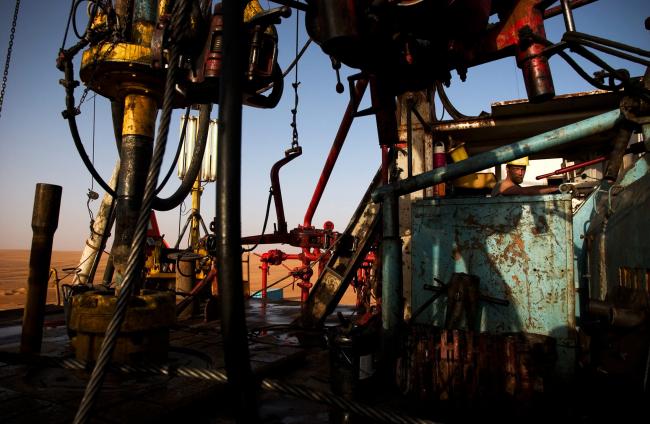(Bloomberg) -- Libya declared a state of force majeure at its largest oil field after an armed group forced a production halt, just days after OPEC exempted the country from global crude output cuts.
The shutdown at the Sharara field will result in a production loss of 315,000 barrels a day, the state energy producer National Oil Corp. said on its website. Sharara is operated by a joint venture between the NOC and Total SA (PA:TOTF), Repsol (MC:REP) SA, OMV AG and Equinor ASA, known formerly as Statoil (OL:EQNR) ASA.
The halt will also reduce Libya’s output by an additional 73,000 barrels a day at the El-Feel, or Elephant, field due to its dependence on Sharara for electricity supply, the NOC said Monday. El-Feel is operated by a joint venture between Eni SpA and the NOC. Force majeure is a legal clause protecting a party from liability if it can’t fulfill a contract for reasons beyond its control.
Libya, with Africa’s biggest oil reserves, has struggled to raise and maintain production amid political divisions, conflict and lawlessness that have crippled its energy industry since a 2011 uprising. Last week, OPEC and other global oil producers approved a new round of output cuts aimed at shoring up crude prices, but exempted Libya due to its persistent internal strife.
Protesters’ Demands
The total daily cost of the latest halt is $32.5 million, the NOC said. Production at the Zawiya refinery is also at risk because it relies on crude from Sharara and will stop processing fuels for domestic consumption unless it can find alternative supplies, the company said.
The shutdown came after protesters, angry at what they say is the Tripoli government’s negligence of the region, stormed the field, demanding better services and health care.
The NOC had warned earlier that members of the Petroleum Facilities Guard, which is responsible for securing the country’s oil facilities, had threatened workers at the field in a bid to prompt a shutdown amid demands for better pay.
A spokesman for a group of protesters called the Fezzan Anger Movement had threatened on Sunday that they would close down Sharara by the evening if their demands were not met.
The NOC on Monday ordered the group to leave the deposit immediately, without precondition, and said it wouldn’t take part in negotiations with the militia.
Output Target
Libya plans to pump as much oil by the end of next year as it did before the 2011 revolt that ousted former strongman Moammar Al Qaddafi, with a target of 1.6 million barrels a day, NOC chairman Mustafa Sanalla had told Bloomberg in October. The country pumped 1.18 million barrels a day in November, data compiled by Bloomberg show.
Protesters have repeatedly threatened to shut down production in Sharara and other oil fields, often demanding better pay or services. In July, Sharara endured an output loss after gunmen stormed one of its stations and kidnapped four of the staff. Oil wells in the area were temporarily shut down as a precaution.
